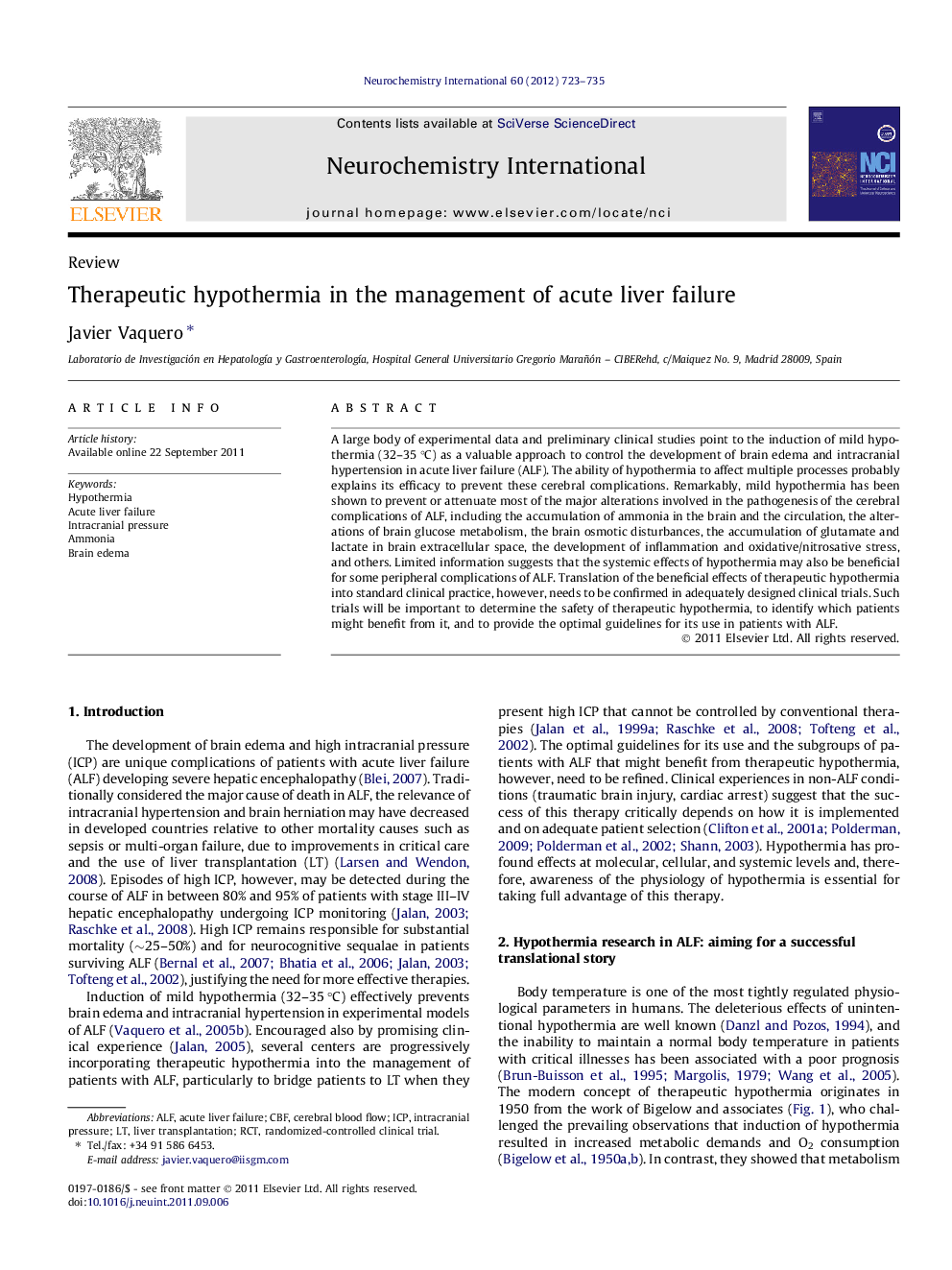| Article ID | Journal | Published Year | Pages | File Type |
|---|---|---|---|---|
| 2200909 | Neurochemistry International | 2012 | 13 Pages |
A large body of experimental data and preliminary clinical studies point to the induction of mild hypothermia (32–35 °C) as a valuable approach to control the development of brain edema and intracranial hypertension in acute liver failure (ALF). The ability of hypothermia to affect multiple processes probably explains its efficacy to prevent these cerebral complications. Remarkably, mild hypothermia has been shown to prevent or attenuate most of the major alterations involved in the pathogenesis of the cerebral complications of ALF, including the accumulation of ammonia in the brain and the circulation, the alterations of brain glucose metabolism, the brain osmotic disturbances, the accumulation of glutamate and lactate in brain extracellular space, the development of inflammation and oxidative/nitrosative stress, and others. Limited information suggests that the systemic effects of hypothermia may also be beneficial for some peripheral complications of ALF. Translation of the beneficial effects of therapeutic hypothermia into standard clinical practice, however, needs to be confirmed in adequately designed clinical trials. Such trials will be important to determine the safety of therapeutic hypothermia, to identify which patients might benefit from it, and to provide the optimal guidelines for its use in patients with ALF.
► Hypothermia prevents brain edema in experimental acute liver failure (ALF). ► Therapeutic hypothermia is also promising in clinical studies of ALF. ► It affects many pathogenic factors of brain edema in ALF (cerebral hyperemia, NH3). ► Its systemic effects may be beneficial, but are also a cause of concern. ► Clinical studies need to confirm its efficacy and provide guidelines for its use.
